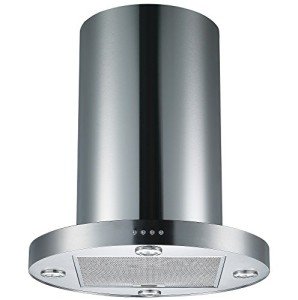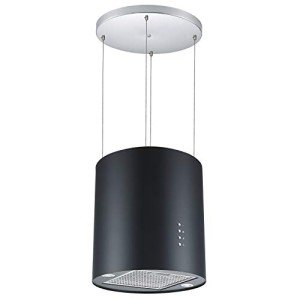We've Had Enough! 15 Things About Island Hob We're Sick Of Hearing
페이지 정보

본문
The Island Vent Hood: A Comprehensive Guide to Choosing and Installing the Perfect Kitchen Feature
In contemporary kitchen style, the island vent hood, My Page, has actually ended up being a vital centerpiece, effortlessly combining performance with aesthetic appeal. With the rise of open-concept living spaces, where cooking areas are integrated with dining and living locations, the significance of a well-designed ventilation system has ended up being vital. This post explores what an island vent hood is, the various types offered, key functions to consider, installation pointers, and FAQs surrounding this vital kitchen element.

What is an Island Vent Hood?
An island vent hood is a kitchen ventilation system developed to be installed above an island cooktop or range hoods for islands. Unlike standard wall-mounted hoods, island hoods are suspended from the ceiling, providing a clear view of the cooking location while effectively removing smoke, steam, and smells from the kitchen. This makes island hoods an attractive option for open layouts while guaranteeing a tidy and comfortable cooking environment.
Types of Island Vent Hoods
When picking an island vent hood, it is important to understand the different types offered in the market. Here are the primary categories:
| Type | Description |
|---|---|
| Ducted | Ventilation is directed outside, providing the very best air quality by expelling air and smells. |
| Ductless | Utilizes filters to clean the air and recirculate it back into the kitchen; easier to install. |
| Convertible | Can operate in both ducted and ductless modes, using flexibility in setup. |
| Under-Cabinet | Mounted under kitchen cabinetry; normally lower output, suitable for smaller sized kitchen layouts. |
Secret Features to Consider
Choosing the best island vent hood involves numerous critical factors. Here are the necessary functions to think about:
- Size: The hood must be at least as wide as the cooktop. Preferably, it ought to extend 6 inches on either side for ideal efficiency.
- CFM Rating: The Cubic Feet per Minute (CFM) ranking indicates the hood's ventilation power. Higher CFM is required for heavy cooking, while lower CFM may suffice for lighter use.
- Noise Level: Measured in sones, a lower sone ranking indicates a quieter operation. A peaceful fan is particularly crucial in open-concept spaces.
- Lighting: Many island hoods come equipped with integrated lighting. LED lights are popular for their energy efficiency and durability.
- Style: island extractor fans vent hoods can be found in different designs, including contemporary, traditional, and commercial. Choose a hood that complements the overall kitchen visual.
Installation Tips
Setting up an island vent hood can be a complicated procedure. Here are some essential suggestions to help with the setup:
- Check regional codes and regulations to make sure compliance with installation height and electrical requirements.
- Determine the hood's height: The top of the hood should be 30 to 36 inches above the cooking surface area, depending on the maker's recommendations.
- Secure the mounting bracket: Ensure that the mounting bracket is properly anchored to the ceiling to support the weight of the hood and motors.
- Ductwork factors to consider: If using a ducted system, ensure appropriate duct size and design for optimum air flow. Avoid sharp bends in ducting, which can hamper air motion.
- Electrical setup: Ensure that the electrical connections meet your hood's power requirements, and think about hiring a certified electrical expert for complicated setups.
Expense Considerations
The expense of an island vent hood can range considerably depending upon features, materials, and brand. Below is a breakdown of potential expenses associated with acquiring and island vent hood installing these hoods:
| Cost Element | Approximated Range |
|---|---|
| Basic Models | ₤ 300 - ₤ 600 |
| Mid-range Models | ₤ 600 - ₤ 1,200 |
| High-End Models | ₤ 1,200 - ₤ 3,000+ |
| Installation Costs | ₤ 200 - ₤ 500 |
Often Asked Questions
1. How typically ought to I clean my island vent hood?Regular cleansing is encouraged, with deep cleaning at least when a month, particularly if you prepare frequently. 2. Can I set up an island vent
hood myself?While it is possible, professional
installation is recommended for safety and ideal performance, especially with ductwork and electrical connections. 3. Are ductless island hoods effective?Ductless hoods can successfully filter
smoke and smells, however they may not be as effective as ducted designs. They require regular filter replacements and upkeep. 4. What type of maintenance does an island vent hood require?Regular cleansing of filters, lights, and hoods, in addition to checking for any wear and tear on motors or ductwork is vital for preserving performance
. 5. What kind of filters ought to I use?Most island vent hoods use aluminum or charcoal filters. Aluminum filters are reusable, while charcoal filters need to be changed
regularly. The island vent hood is an essential element of a modern kitchen, supplying exhaustion of unwanted smells and making a striking design statement. Choosing the ideal type, comprehending important
features, and sticking to appropriate installation strategies will guarantee ideal efficiency and durability of this kitchen appliance. Whether you are a skilled chef or an occasional home cook, the best island vent hood can considerably enhance your cooking experience. By following the standards and factors to consider described in this post, homeowners can make educated choices and enjoy a cleaner and more enjoyable cooking environment.
- 이전글레볼루션 【위너보증.com / 가입코드 9122】 보증업체 25.05.21
- 다음글10 Things That Your Family Taught You About Single Electric Oven And Grill 25.05.21
댓글목록
등록된 댓글이 없습니다.